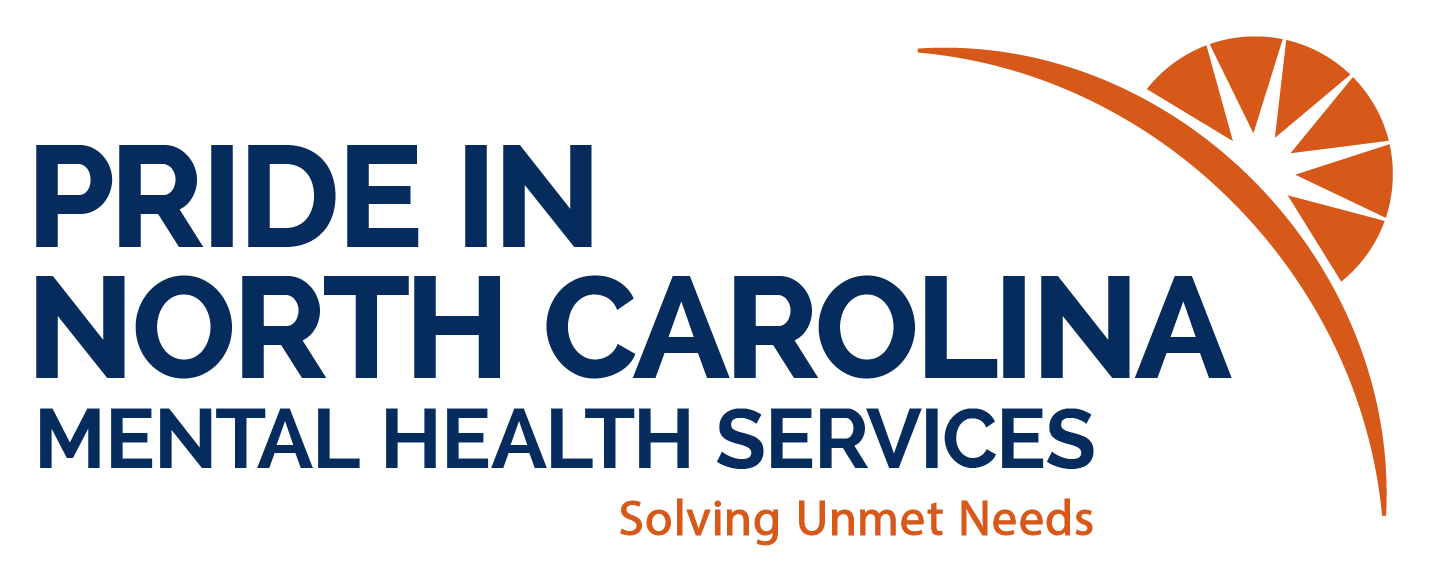Glossary
Glossary of Terms
Service Descriptions and Commonly Used Terms
Pride In North Carolina offers a community-based network of services designed to meet the diverse and individual needs of our Consumers. This network of services is premised on the belief that all of our programs must be flexible and capable of adapting to the individual’s changing needs and that the Consumer is the center and driving force with each and every service. In addition to the description of the services we provide, you will also find some commonly used terms throughout Mental Health and Developmental Disability Services.
A person who acts on your behalf to ensure your rights are upheld. This is a person you can contact when you are dissatisfied with your services or an event. An advocate can be appointed by a court or family / legally responsible person.
An evaluation by a professional designed to assess an individual’s current level of functioning and identify any problem areas. Any specific diagnoses, treatment options or medically necessary services will be identified.
A plan that is established to identify what specific behaviors of the consumer need to be focused on for improvement or because they present a safety risk. The plan includes the targeted behavior(s), what triggers the behavior, how to positively respond, how to reinforce positive behaviors, as well as what do to in the event of a crisis.
The process by which we keep all information regarding the person served in confidence. Information can only be released with the person served or legally responsible person’s permission. In the case of an emergency some information can be released to ensure safety or if mandated by the court system.
Agreement by an individual served or legally responsible person following receipt of information from the agency who will provide the proposed treatment or procedure. Consent implies that the person served or legally responsible person was provided with sufficient information, including both benefits and risks, in order to make a decision with regard to such treatment.
A situation in which a person served is in imminent danger of causing abuse or injury to self or others, or when a person served behavior has escalated to the point where outside intervention is necessary. A crisis for one person is not the same for another. It is important to discuss with your treatment team what defines a crisis for you or for the person served.
A concern that you have either been treated unfairly or are unsatisfied with the treatment you are receiving. There are procedures for filing a grievance to help address your concerns and ensure that you feel the matter is resolved either by our staff or an outside agency.
A term given to the need that a specific service is deemed necessary to protect and promote an individual’s mental health. This decision is made by a doctor who, after assessing an individual’s presenting issues and needs, decides that in order to remain healthy they require the specified service.
Commonly referred to as therapy, this service is designed to meet the significant behavioral or psychological symptoms or patterns that have been identified by the individual as causing problems in their daily functioning. This service can be provided to individuals, couples, families or groups in a variety of settings.
A document that states what the person served goals are, based on their needs and wants. It is to revolve around the individual not the program or service and should reflect what is important to the individual and/or their family.
The individual receiving services from a provider agency. This individual should be the “director” of the services and play the largest role in the development of the Person Centered Plan and goals of all services provided.
The limitation of one’s freedom of movement and includes the use of a physical intervention. A physical intervention is the restraint of an individual by holding or subduing him/her until calm.
A document that expresses your choices about treatment if you are subject to involuntary psychiatric commitment or treatment in the future.
The process in which an individual is able to live, work and fully participate in their community by reducing and having control over their symptoms and behaviors. Recovery means different things to different people, we encourage you to think about what this means to you and play an active role in your recovery process so you can enjoy your life and interactions with others.
A service provided to a family or individual when a period of relief is needed. For example a parent would request respite services for their child when they need a “break” due to the strain of caring continually for their child. This type of care can be provided in the home or in another location.
Treatment interventions designed to address the specific needs of an individual. The goals and outcomes of the service are determined by the individual and the treatment team and assessed to be medically necessary by a doctor.
Person served, guardians, family members, partnering agencies, employees, and other individuals or businesses that have a vested in interest in PRIDE In North Carolina, LLC This may include our mental health and /or developmental disability services and our business practices.
The process of providing for the physical, emotional, psychological and social needs of a consumer through a variety of individually tailored services.
A group of people who are invested in the goals and progress of an individual. An individual and/or their family should play the center role in this team. A team can include the QP, therapist, doctor, teachers and other service providers.
Contact Us
Have questions for us?
Pride in North Carolina has 11 locations across the state. For additional information, please contact us at one of the office locations listed on this website.
